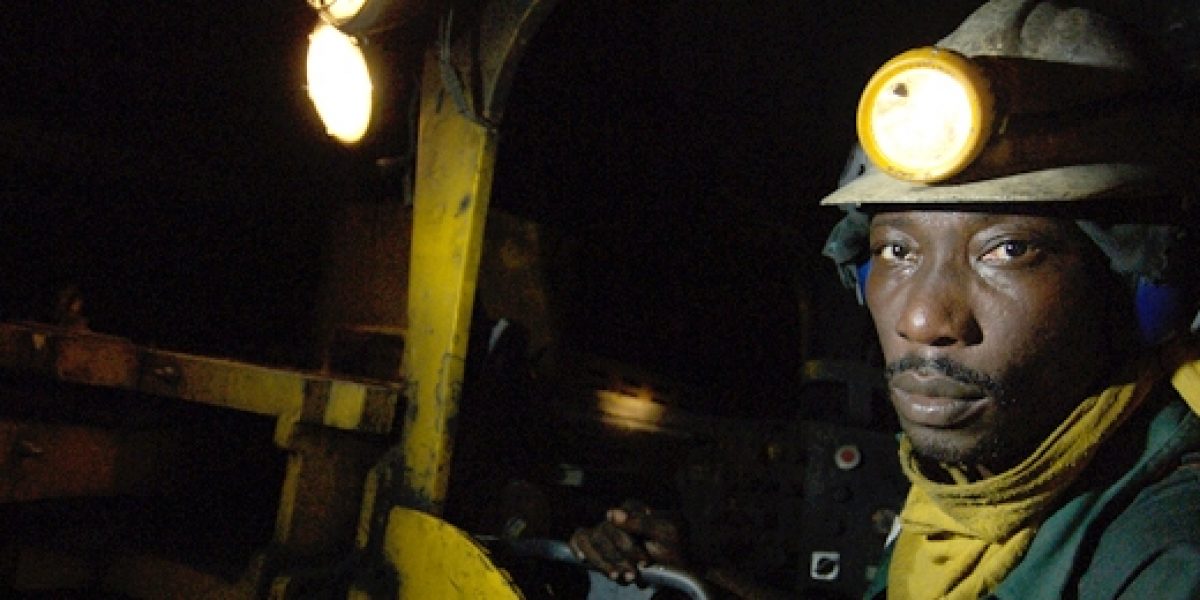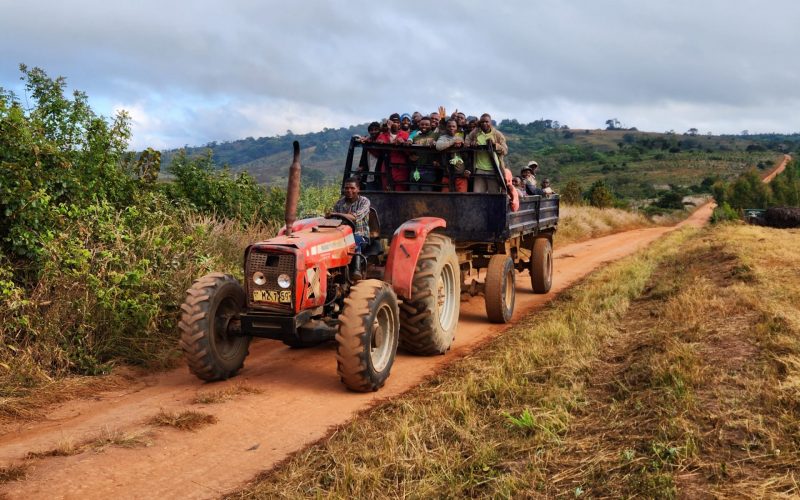Actions regarded as resource nationalism have thus varied widely, from tax hikes, through demand for greater state equity and indigenous participation, to renegotiation of stability clauses in mining contracts. Also, so-called beneficiation strategies – pursued by South Africa, Brazil, Indonesia, Vietnam and others – involve demands for value-added processing before exporting.
The term has generally described initiatives by host governments to secure greater financial, regulatory, and sometimes operational control over extractive activities. Recently, Zambia and Mali have pushed for 25 to 35 percent state participation in mining projects. In Ghana, public opinion supports a windfall tax on extractive firms. Similar demands are made in other African mineral producers. Ernst and Young, the global consultancy, claims in its Business Risks in Mining and Metals 2012/13 report that resource nationalism is the biggest risk for mining companies in Africa.
Beyond the definitional controversy, it is true that governments that have pursued naked resource nationalism have tended to suffer adverse effects in the longer term. Given the cyclical nature of global commodity prices, producers’ hubris during commodity super-cycles can be punished when prices fall. Often, such policy imprudence discourages investors. Indeed, when governments abruptly or unilaterally revise existing agreements or break with established conventions, complaints by affected foreign companies will be legitimate.
On the other hand, when companies seek unfair concessions such as in wartime Democratic Republic of Congo (DRC), they prejudice the rights of host communities. Such behaviour inadvertently invites interventionist government actions. It is, though, a risky strategy to move against foreign mining interests without fully following the rule of law. Unlike Zimbabwe’s aggressive resource nationalism, a newly elected government in Zambia managed recent policy changes by informing and directly negotiating with foreign companies, including raising copper royalties to six percent.
African governments should not be in hock to multinationals but decisions on mining should be taken competently and constructively. Otherwise, they risk losing the big mining investments which are vital to developing new reserves for the overall benefit of the economy.
For example, BHP’s departure from Guinea after the country adopted new mining codes in 2011 led to concerns that the country could be scaring off serious industry players whilst opening the door to lower quality investors. The still ongoing review of major mining contracts being done by Guinea’s government must therefore be completed expeditiously and impartially. Nevertheless, some recent mining disputes tied to African resource nationalism really belong in a grey area.
As noted in a recent African Development Bank report, while the price of gold surged more than five-fold since 2000, Africa’s gold-producing countries did not cash in sufficiently. This is due to the approximately three percent royalty on gold production agreed by those governments in the late 1980s and early 1990s when the price of gold was low.
Attempts to update such agreements better to reflect today’s high prices cannot be dismissed as mindless resource nationalism. Other examples include calls by campaigners in the DRC for the review of the $9billion DRC-China ‘resource-for-infrastructure’ deal. Zimbabwe has similarly revised a deal with an Indian firm that secured iron ore reserves worth $20billion for a $700million investment. Yet, retrospective demands such as Uganda’s call for the abolition of a stability clause in a $10 billion oil project are more controversial.
Often, African governments use the discourse of resource nationalism to conceal governance failures. Similarly, the capacity deficit among African mineral producers has complicated relations with foreign companies. Understanding these interlinked elements is vital to resolving tensions created by resource nationalism. Some governments continue to offer excessively generous terms to companies believing that such incentives are necessary to attract Foreign Direct Investments (FDI).
Many of these governments lack the capacity to evaluate reserves, manage negotiations, enforce regulations and monitor compliance. For example, the DRC is short of qualified evaluators despite its immense mineral wealth. In these contexts, administrative fiat and misguided legislations couched in the language of resource nationalism become the norm as national regulators vainly attempt to rescue back the initiative.
An increased role for the state in mining, rather than proving rewarding, actually reveals governance inadequacies. Aggressive nationalisation policies are portrayed as beneficial to the masses whilst wealth continues to be concentrated in the hands of elites. Balancing interests with risk-sharing requires sacrifices from multiple stakeholders. Where corporate and state interests diverge, more practical approaches can provide solutions.
Instead of insisting on beneficiation principles, governments could promote planning policies which help local industrialists and small businesses localise operations and settlements around mining nodes. In this way, communities could benefit from mine infrastructures and inputs and governments can pursue more focused public-private partnership for infrastructural development. This leveraging approach can create successful African ‘resource-for-infrastructure’ models. In the end, resource nationalism is merely symptomatic. Weak governance and capacity deficits represent much more serious obstacles to achieving win-win outcomes for stakeholders in extractive activities in Africa.
SAIIA Research on Mining issues
Opinion and Analysis
Will Mangaung save South Africa’s mining sector?
Written by Ichumile Gqada
16 December 2012
Mining and Minerals for development: Making the case for Africa
Written by Ichumile Gqada
13 November 2012
The South African mining industry on the road to Mangaung
A seminar by Peter Leon
03 September 2012
Artisanal and Small-scale Mining in Africa: Opportunities and Challenges
Written by Alex Benkenstein
01 March 2012
Mining in Africa: Preventing holes in the ground and the pocket
Written by Petrus de Kock
01 March 2012
Policy Briefings
Zimbabwe’s Marange Diamonds and the Need for Reform of the Kimberley Process
by Tyanai Masiya & Alex Benkenstein
SAIIA Policy Briefing No 43, February 2012
The Land Factor in Mining Gold Reserves in Tanzania
by Furaha Lugoe
SAIIA Policy Briefing No 34, July 2011
Indian Mining Companies in the Democratic Republic of Congo
by Gregory Mthembu-Salter
SAIIA Policy Briefing No 35, October 2011
Occasional Papers
Uranium Mining in Africa: A Continent at the Centre of a Global Nuclear Renaissance
by Nicolas Dasnois
SAIIA Occasional Paper No 122, September 2012
Setting the Boundaries of a Social Licence for Mining in South Africa: The Xolobeni Mineral Sands Project
by Ichumile Gqada
SAIIA Occasional Paper No 99, November 2011








